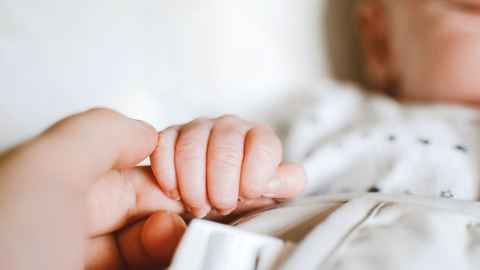Understanding the Placenta
Are you pregnant and considering what to do with your placenta (whenua)? The placenta (whenua) nourishes and provides life for babies in the womb. We are interested in collecting your whenua to study after you have given birth.

What we are trying to find out
Doctors and midwives don’t know which pregnancies are going to develop problems. Also, when problems occur, there are not many treatments to help. This means babies might have to be born earlier than they would have if everything had been normal.
By studying parts of the whenua, we hope to better understand how it works, how problems with its function can lead to problems during pregnancy or later in life, and how we can help at risk pēpi and māmās.
For examples of some of our work benefitting from placental donations please see below:
What's involved?
In Aotearoa New Zealand, parents decide what to do with their baby’s whenua after birth.
If you have decided not to take your placenta home, it would normally be disposed of in the hospital. If you decide to donate your whenua to research, we will collect it and take it to our lab at the University of Auckland, where we will use it for our research projects. We often only take pieces of tissue from your placenta, and can return the rest back to you if you would like.
The decision to donate your placenta does not affect the timing of cord clamping. More detail on what happens to this tissue and any information about it can be found in the information sheet.
Who is eligible?
We can currently only collect placentae from deliveries that happen at Auckland City Hospital.
We are interested in placentas from normal pregnancies, and from pregnancies complicated by fetal growth restriction and/or pre-eclampsia.
Due to the nature of what we are studying we are unable to use placenta from patients who have:
- Diabetes (Type 1 or 2, or gestational diabetes)
- Multiple pregnancies
- High blood pressure (without pre-eclampsia)
- Fetal chromosomal abnormalities
- Infections such as toxoplasmosis, syphilis, varicella-zoster, parvovirus B19, rubella, cytomegalovirus (CMV), herpes, hepatitis or HIV
- People with normal pregnancies who had Covid during the second half of pregnancy
For full details please see the information sheet below.
Contact details
If you have any questions please contact:
Associate Professor Jo James
Department of Obstetrics and Gynaecology
Email: j.james@auckland.ac.nz
Phone: 09 923 2549
Professor Larry Chamley
Department of Obstetrics and Gynaecology
Email: l.chamley@auckland.ac.nz
Phone: 09 923 9501
If you would like to donate your placenta to our research, please contact:
researchmidwives@auckland.ac.nz
Further information
-
Participant Information Sheet . Size: 221.8 kB.
Document Description: Find out more about this study and what it involves.
This donation of human placentae for this research has received HDEC approval from the Northern X Ethics Committee. Study title: ‘Understanding the Placenta’, reference number NTX/12/06/057/AM012.